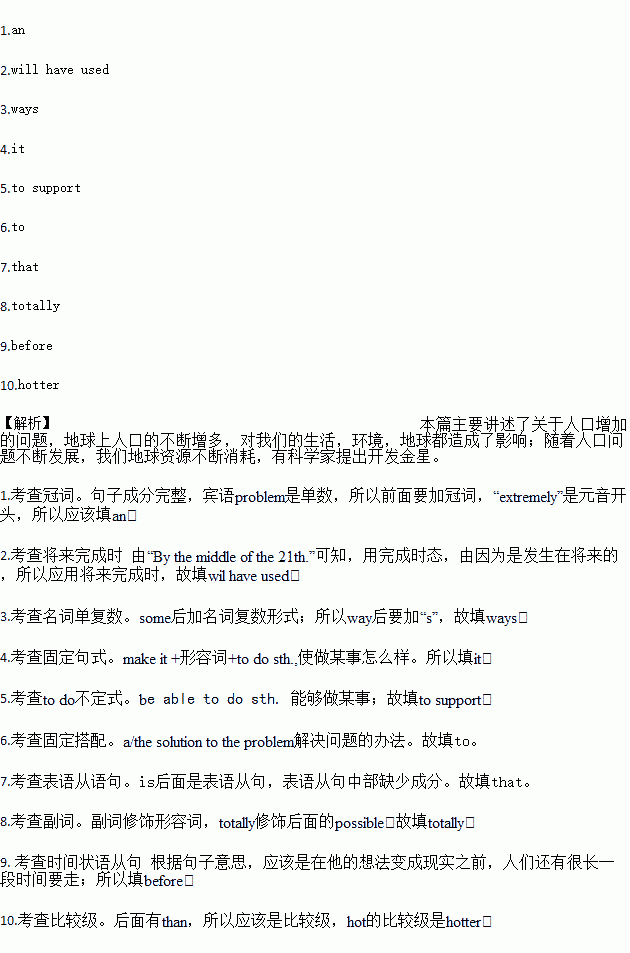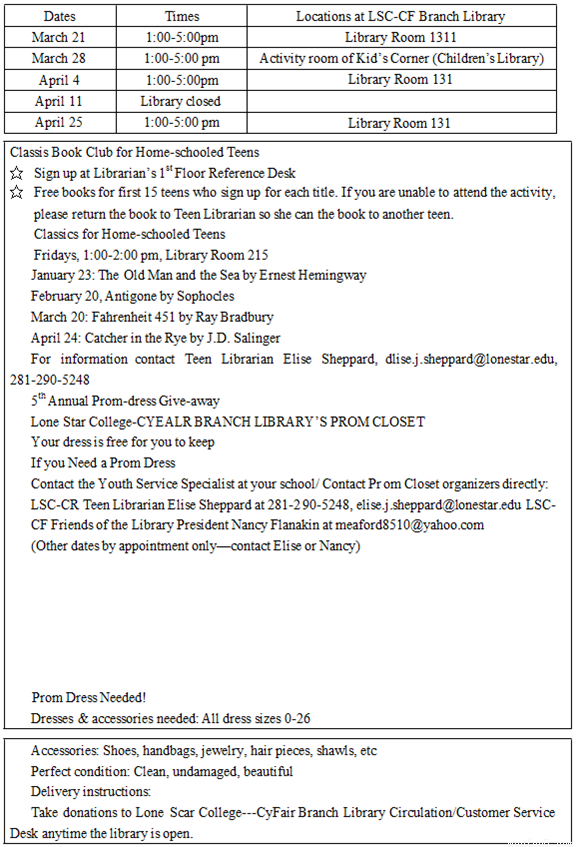题目内容
How will our continuously growing population affect our way of life, our environment, even our planet? No matter how you look at it, we will face 1.extremely serious problem. By the middle of the 21st century, we 2.(use) up all the oil that drives our cars if at the rate we’re going. Even if scientists develop some new 3.(way)of feeding the human race, the crowded conditions on the earth will make 4.necessary for us to look for open space somewhere else. But none of the planets in our solar system are able 5.(support) life at present. One possible solution 6.the problem, however, has recently been suggested by an American scientist, Professor Carl Sagan. His idea is 7.before the earth’s resources are almost exhausted, it will be 8.(total)possible to change the atmosphere of Venus(金星)and so create a new world almost as large as earth itself.
However, 9.his idea is turned into reality, humans have a long way to go. On the one hand, Venus is much 10.(hot)than the earth; on the other hand, there is only a tiny amount of water there.
 快捷英语周周练系列答案
快捷英语周周练系列答案

 itional Chinese calendar;糯米——glutinous rice;竹叶或芦苇叶——bamboo or reed leaf;自尽——commit suicide
itional Chinese calendar;糯米——glutinous rice;竹叶或芦苇叶——bamboo or reed leaf;自尽——commit suicide
 ite 'Roasted Turkey' with the family.
ite 'Roasted Turkey' with the family.